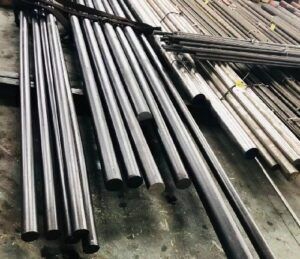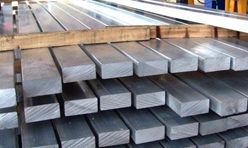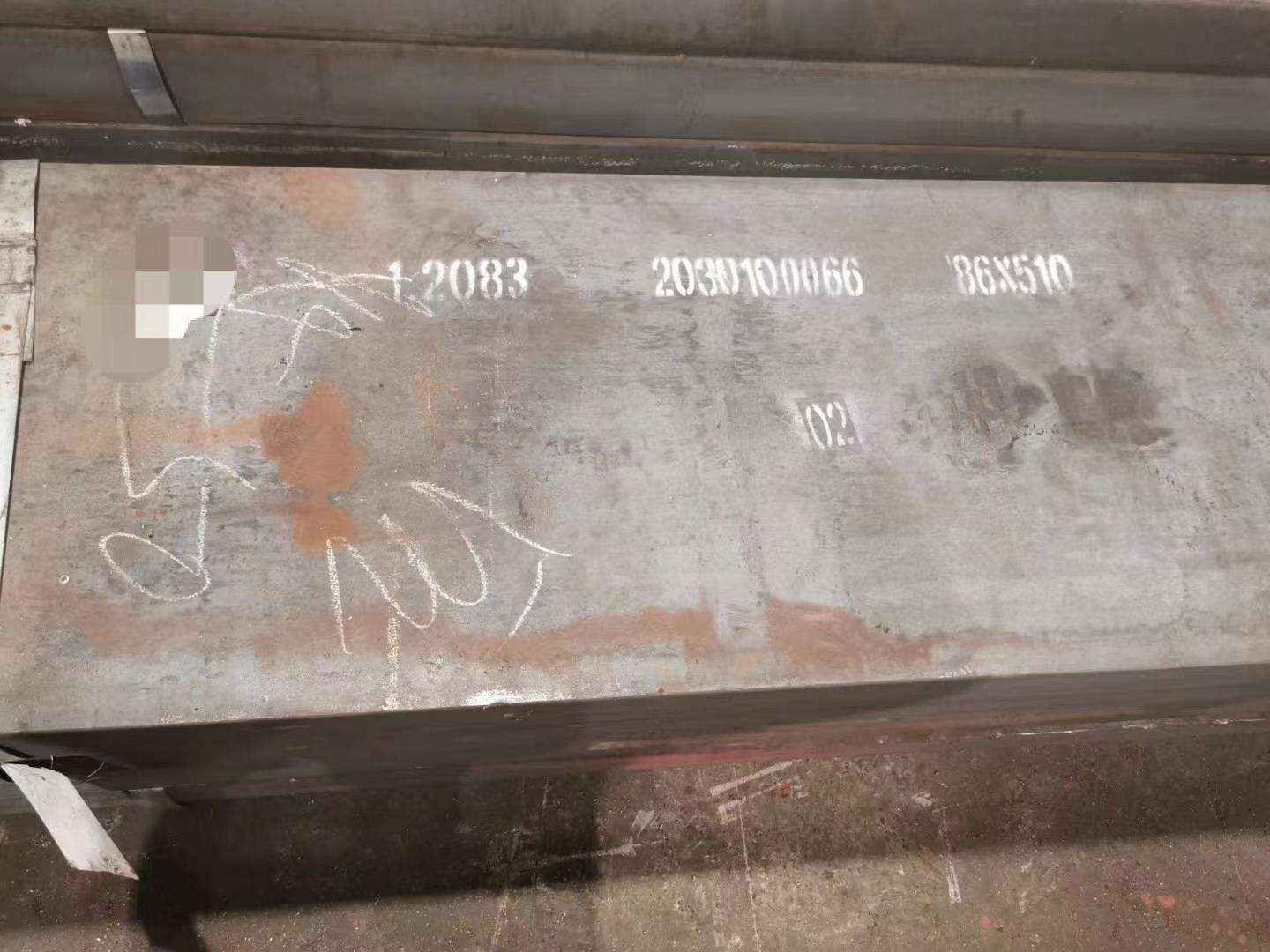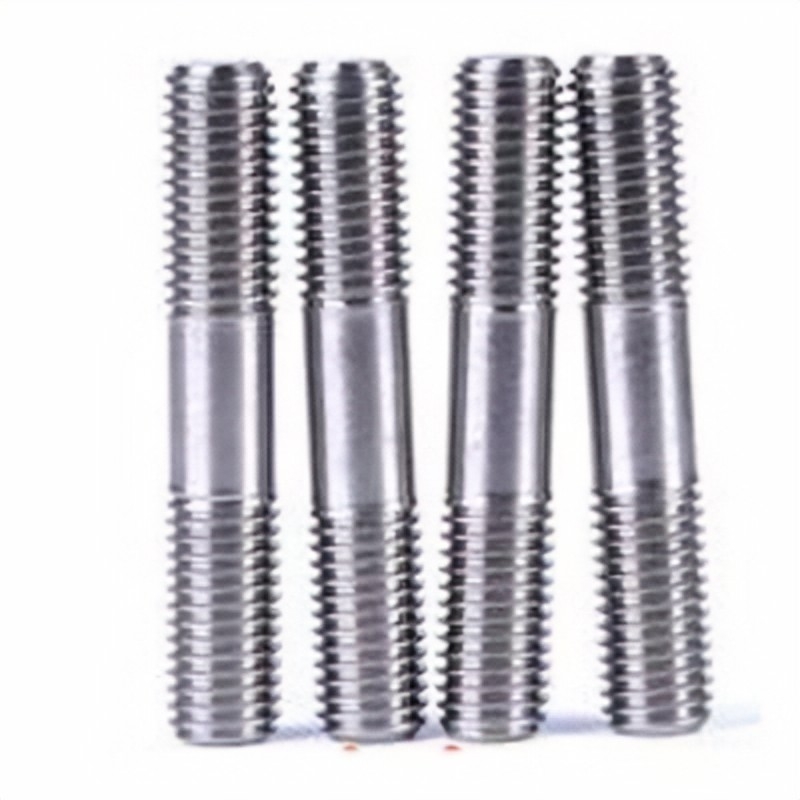AISI 630 SUS630 17-4PH 1.4542 PH Stainless Steel Round Bar
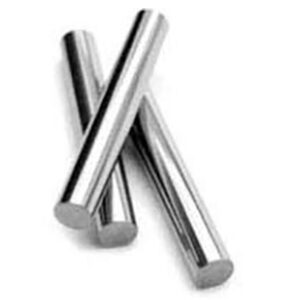
AISI 630 SUS630 17-4PH 1.4542 PH Stainless Steel Round Bar
Introduce
17-4PH / 630 / 1.4542 is one of the most popular and most commonly used stainless chromium-nickel alloy steels with copper additive, precipitation hardened with martensitic structure. It is characterized by high corrosion resistance while maintaining high strength properties, including hardness. Steel can operate in the temperature range from -29 ℃ to 343 ℃, while retaining relatively good parameters. In addition, the materials in this grade are characterized by relatively good ductility and their corrosion resistance is comparable to 1.4301 / X5CrNi18-10.
Back to Top
Application
17-4PH, 630 and X5CrNiCuNb16-4 / 1.4542 is provided in the form of round bars, sheets, flat bars and cold-rolled strip. The material is widely used in the aerospace, marine, paper, energy, offshore and food industries for heavy-duty machine components, bushings, turbine blades, couplings, screws, drive shafts, nuts, measuring devices.
Back to Top
Chemical Component
| Grade | C | Mn | P | S | Si | Cr | Ni | Cu | Cb+Ta |
| 630 UNS S17400 | 0-0.07 | 0-1 | 0-0.04 | 0-0. 030 | 0-1 | 15-17.5 | 3-5 | 3-5 | 0.15-0.45 |
Smelting Option
1 EAF: Electric Arc Furnace
2 EAF+LF+VD: Refined-smelting and vacuum degassing
3 EAF+ESR: Electro Slag Remelting
4 EAF+PESR: protective atmosphere Electro Slag Remelting
5 VIM+PESR: Vacuum induction melting
Forming Option
1 Hot rolling process
2 Hot Forging: Electro-hydraulic; High-speed-hydraulic; Oil-hydraulic; Precision-forging
Heat-treatment Option
1 +A: Annealed (full/soft/spheroidizing)
2 +N: Normalized
3 +NT: Normalized and tempered
4 +QT: Quenched and tempered (water/oil)
5 +AT: Solution annealed
6 +P: Precipitation hardened
Suface Option
1 Black Surface
2 Grounded: Bright but rough ; Not precision
3 Machining for plate: Bright and precision; Little turning scar
4 Peeled/Turned: Bright and precision; Little turning scar
5 Polished: Very Bright and precision size; Not turning scar
Other Services
1 Cutting: Small pieces
2 CNC Machine: Produce as your drawing
3 Package: Bare/Nylon/Canvas/Wooden
4 Payment:T/T, L/C, O/A(request credit)
5 Transport:FOB/CFR/CIF/DDU/DDP (train/ship/Air)
Back to Top
Mechanical Properties
| Condition | Tensile Strength (MPa) | Yield Strength 0.2% Proof (MPa) | Elongation (% in 50mm) | Hardness | |
| Rockwell C (HR C) | Brinell (HB) | ||||
| Solution Treated | 1105 typ | 1000 typ | 15 typ | 38 max | 363 max |
| Condition 900 | 1310 min | 1170 min | 10 min | 40 min | 388 min |
| Condition 1150 | 930 min | 724 min | 16 min | 28 min | 277 min Back to Top |
Corrssion Resistance
The corrosion resistance of Type 17-4PH / 630 is comparable to that of Type 304 Stainless Steel in most media and superior to that of the hardenable 400 series stainless steels. Refer to NACE (National Association of Corrosion Engineers) for recommendations .
Back to Top
Heat Resistance
Grade 630 stainless steels have good resistance to oxidation. However, long-time exposure of grade 630 to temperatures of 370 to 480°C should be avoided, to prevent loss of toughness at ambient temperature. These grades should not be used at temperatures above age-hardening temperature, to avoid reduction of hardness and mechanical properties of the metal.
Back to Top
Heat Treatment
Solution treatment (Condition A) — Grade 630 stainless steels are heated at 1040°C for 0.5 h, then air-cooled to 30°C. Small sections of these grades can be oil quenched.
Hardening — Grade 630 stainless steels are age-hardened at low temperatures to achieve the required mechanical properties. During the process, superficial discoloration occurs followed by shrinkage at 0.10% for condition H1150, and 0.05% for condition H900.
Back to Top
Welding
Grade 630 stainless steels can be welded using all conventional methods, and they do not require pre-heating. Care should be taken in designing and welding of high strength steels to prevent weldment stresses.
Back to Top
Machining
Grade 630 stainless steels can be machined in their solution-treated condition. They have machining rates similar to that of grade 304 steels.
Back to Top

